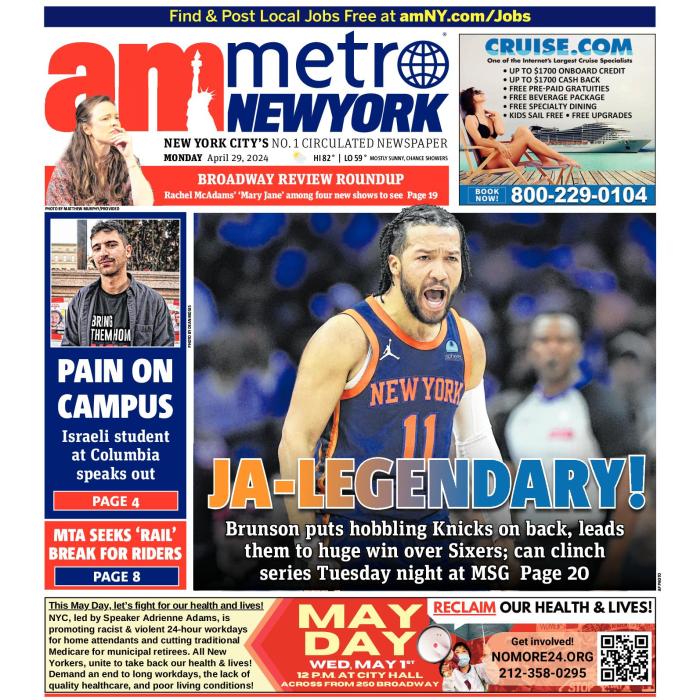
 BY CLARISSA-JAN LIM | The literary world has been set quietly abuzz by Lucas Mann’s debut nonfiction work, “Class A: Baseball in the Middle of Everywhere.” Mann’s chronicle of the LumberKings, a minor league baseball team in Clinton, Iowa, has been hailed as “a revelation” by The Seattle Times, and, according to N.P.R., “offers a fresh, unexpected angle on this well-trodden game.”
BY CLARISSA-JAN LIM | The literary world has been set quietly abuzz by Lucas Mann’s debut nonfiction work, “Class A: Baseball in the Middle of Everywhere.” Mann’s chronicle of the LumberKings, a minor league baseball team in Clinton, Iowa, has been hailed as “a revelation” by The Seattle Times, and, according to N.P.R., “offers a fresh, unexpected angle on this well-trodden game.”
Mann heard about Clinton while studying at the University of Iowa for his M.F.A. in creative writing. He was intrigued by a place that so picturesquely evoked the idea of an all-American town steeped in its own culture and traditions. Mann approached the team in 2010 with the idea of their story for his senior thesis, and the possibility of a book in mind.
“It was a happy accident,” he said of his discovery of the LumberKings. “I really lucked out.”
More than just focusing on the team or the sport, “Class A” is an in-depth look at a way of life. Mann profiles the team’s players, their families, its fans and the town of Clinton itself — once considered the “Lumber Capital of the World” but now in economic decline. Mann approaches his subject from a personal rather than a detached, journalistic perspective.
“When writing nonfiction,” he explained, “the takeaway should always be the human element, the personal element, not the exact statistics.”
He considers “Class A” a story about “a place and a group of people that seemed really interesting and have really resonant themes more than just baseball.”
Mann’s work was a personal journey for him, as well. A big part of the book is him trying to reconcile the insider-outsider nature of being around the team and its fans. He said he thinks what helped make the players comfortable with his continuous presence were his youth (he was 23 at the time) and the fact that he had no credentials whatsoever.
“It’s sort of an exciting place to come from,” he said. “You just have as little control as they do.”
His choice of baseball as a topic does not come as a surprise.
“This is a game and a world that has always been really resonant with me,” he said. As a youth, Mann played in Greenwich Village Little League, and his games were covered in his hometown paper, The Villager.
In writing a book about the sport, he said, “I wanted to see how it would be to be immersed in that.”
His research for “Class A” saw him don the Louie the LumberKing mascot outfit, which he described as a “sweaty” experience. It proved useful, though, to be able to watch the game from on the field, rather than from the bleachers.
“It was kind of cool to have that perspective shifted,” he said.
Mann said he has received “wonderful, gracious” responses from the people of Clinton about his book.
“They seemed to be happy that I captured the moment in that place,” he said. “That was very validating.”
However, he said he hopes his frank portrayal of some of the characters in the book don’t come off as mean-spirited.
“I tried to be as empathetic as possible,” he said. “There’s a sort of gritty reality there. But what I hope comes across is an honest affection, as opposed to trying to take shots at people.”
Only a few years ago, Mann was a summer intern for The Villager. His deft interviewing skills were apparent even then in his profiles of the likes of Richie Gamba, “The Mayor of Spring St.,” and others.
Yet, the positive reviews for his debut book have come as a surprise for him.
“It’s a totally different thing when you realize strangers out there have read it,” he said, “and that they like the things in the book that you wanted them to like.”
Mann’s love for nonfiction lies in the idea of being able to turn his gaze on something for a moment, and then leave it behind. Though he expertly captured the milieu of a minor league team, he has an aversion to being pigeonholed into a particular topic.
“Whatever the next thing is,” he assured, “it won’t have anything to do with sports.”


















